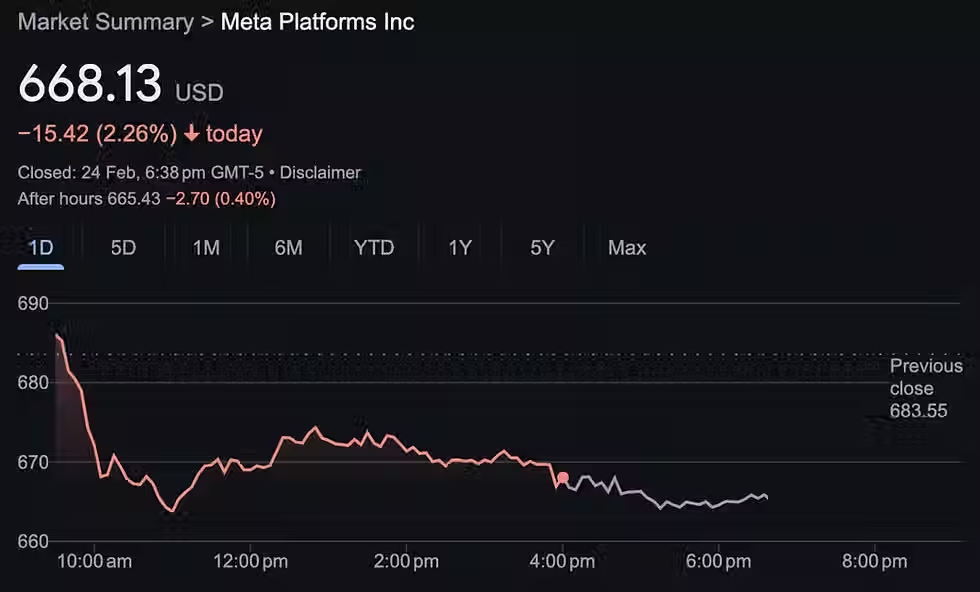Small Cap Investing: Best Performing Small Cap Stocks to Buy
- Buffett Online School

- Aug 18, 2023
- 6 min read

If you've ever dreamt of discovering the next hidden gem before it becomes a household name, small-cap investing might be what you've been looking for.
Small-cap investing is all about looking for investment opportunities in smaller companies. These companies are less well-known and smaller than the large ones you often hear about in the news.
At Buffett Online School, we also believe in investing in great companies you understand and utilizing Free Investing Resources to help you start your financial freedom and investment journey is one of the best ways to learn.
It can be an exciting journey when you choose to invest in small caps because these companies have more room to grow than the larger ones. Since they are not as popular, their stock prices might be lower, making it easier for you to start.
It's like exploring the uncharted territories of the stock market, where you find promising companies that could become big success stories.
However, it's important to remember that with potentially higher rewards, higher risks are also involved, so it's essential to research and make informed decisions.
What is a Small-cap Stock?

Capitalization is called "cap" in the context of small-cap stocks. It stands for market capitalization or the current market estimate of a company's total dollar value. To determine this value, multiply the company's current share price by the total number of available shares.
Small-cap stocks are stocks of smaller companies worth around $300 million to $2 billion. These smaller companies have the chance to grow quickly, which makes them attractive to investors. However, their stocks can be more unpredictable and risky for people who invest in them.
Small-cap stocks also differ from larger stocks and come with risks and rewards for you as an investor. Small-cap stocks include both companies that are expected to do very well in the future and companies that are struggling financially.
Because of these, small-cap stocks can experience more significant changes in their value compared to other stocks. This means that their prices can go up and down quickly. Over a long period, if you can handle these ups and downs, then you may be rewarded.
However, in the short term, some small-cap stocks can have unpredictable swings and may be harder to sell quickly for cash.
Advantages and Disadvantages of Small Cap Stocks

Before investing in small-cap stocks, consider the pros and cons, and make informed decisions to manage potential risks effectively.
You can also join communities like the Buffett Online School community, where like-minded investors gather to learn and discuss different stocks every month, so we can constantly improve to become better investors over time.
Advantages of Small Cap Stocks
Earning potential: Smaller companies have more room to grow than larger ones. So, if you invest in them, you could potentially make a big profit.
Affordable shares: Small-cap stocks usually have lower share prices, making it easier to start investing. Due to certain regulations, these prices are not artificially boosted by big financial institutions like mutual funds or hedge funds.
Diverse options: Small-cap companies are not just startups; they can be found in various industries, and some have been around for a while. This gives you a wide range of choices for your investments.
Less well-known: Small-cap companies are less popular and widely known than larger ones. Because of this, they are often undervalued, which can offer a good return on your investment.
Disadvantages of Small Cap Stocks
Unstable prices: Smaller companies are more sensitive to changes in the market because they have less money to fall back on compared to more prominent companies. This means that the prices of small-cap stocks can go up and down quite a lot and very quickly.
Higher risk: Although small-cap companies have a lot of potential to grow, they also have a higher chance of failing. Investing in small-cap stocks is riskier than investing in big companies because these smaller companies may need more access to money and are easily affected by market changes.
So, there's a bigger chance that you might lose money with this kind of investment.
Limited information: Unlike big and medium-sized companies, small-cap companies get less attention from financial experts and analysts. You must continue researching and understanding how to value these companies properly before investing in them.
Less easy to buy or sell: Smaller companies are not as well-known, so their stocks are more challenging to buy or sell. When you want to buy or sell these stocks, finding someone willing to trade with you might be harder.
This lack of "liquidity" can make it more challenging to enter or exit the market when you want to.
5 Best Small Cap Stocks to Consider Investing in 2023
Ticker | Company | Performance (Year) | Market Value |
CABA | Cabaletta Bio, Inc. | 820.67% | $529.11M |
AMAM | Ambrx Biopharma Inc. | 429.41% | $874.56M |
ETNB | 89bio, Inc. | 427.33% | $1.29B |
ARDX | Ardelyx, Inc. | 404.13% | $746.33M |
APLD | Applied Digital Corporation | 264.62% | $806.24M |
Source: Finviz
CABA (Cabaletta Bio, Inc.)
Cabaletta Bio, Inc. is a company that works in biotechnology. They are at the stage where they are testing their therapies on humans in clinical trials. They focus on creating special T cells that can target and treat autoimmune diseases caused by B cells.
Their unique technology uses a receptor to identify and remove the B cells responsible for producing harmful antibodies. The company was started in April 2017 by Michael C. Milone, Steven Nichtberger, and Aimee Payne, and their main office is located in Philadelphia, PA.
AMAM (Ambrx Biopharma Inc.)
Ambrx is a company in the medical field that is currently testing its treatments on humans in clinical trials. They use a special "expanded genetic code" technology to create precise and customized medicines.
These medicines include advanced antibody-drug conjugates, targeted immune therapies, and long-lasting peptides for metabolic and heart diseases. Ambrx has a range of treatments being developed to work better, be safer, and more convenient for patients in different medical areas. Their leading treatment candidate is called ARX788.
ETNB (89bio, Inc.)
89bio, Inc. is a company in the medical field that is currently testing its treatments on humans in clinical trials. They focus on creating new and effective therapies for liver and cardio-metabolic diseases.
Some treatments they are working on include pegozafermin, FGF21, NASH, and SHTG. The company was started on January 18, 2018, and its main office is in San Francisco, CA.
ARDX (Ardelyx, Inc.)
Ardelyx, Inc. is a company in the medical field that works on creating and selling medicines for heart and kidney diseases. They have a product called tenapanor, which is still being tested in advanced clinical trials.
This medication works specifically in the digestive system to treat certain health conditions. The company was started by Dominique Charmot, Peter G. Schultz, and Jean M. Frechet on October 17, 2007, and their main office is in Waltham, MA.
APLD (Applied Digital Corporation)
Applied Digital Corp. is a technology company that builds and runs data centers. Computers and servers work together in these centers to provide computing power for various tasks.
The company was created in May 2001, and its main office is in Dallas, TX.
How to Invest in Small Cap Stocks
You can invest in their stocks with enough time and knowledge to research small companies. You can buy these stocks through a brokerage account. Before investing, it's essential to look into a few things about the company:
Earnings and revenue growth
Check if the company is growing and making more money over time, even if it has yet to start making a profit.
Price-to-earnings ratio (P/E ratio)
This compares the current stock price to the company's earnings per share. It helps you understand if the stock's price is reasonable based on the company's earnings.
Price-to-sales ratio (P/S ratio)
If the company still needs to get earnings per share, you can use this ratio to compare its performance to other small companies in the market.
If researching individual companies feels too difficult or risky, there's another option. You can invest in small-cap mutual funds or exchange-traded funds (ETFs). These funds follow a broad index of small-cap stocks, focus on specific industries, or have investment goals like seeking value or growth.
This way, you can invest in a group of small companies without researching each separately.
Join Our Free 2-Day BOS Value Investing MBA
At Buffett Online School, we believe in learning the right investing mindset and system to cultivate emotional detachment and grow our wealth safely and substantially in the long run.
Our next 2-day BOS MBA Value Investing Online Bootcamp is happening soon! We will teach you how to use Warren Buffett's proven investing method to maximize your portfolio.
Remember, you can cultivate the right investing mindset and unlock your potential to build wealth through intelligent investing. Together, we can create a network of educated investors who make informed decisions and contribute to their financial well-being!
In the meantime, feel free to check out some of our blog posts to continue learning. You can also join our BOS Telegram channel for more investing insights!





Comments